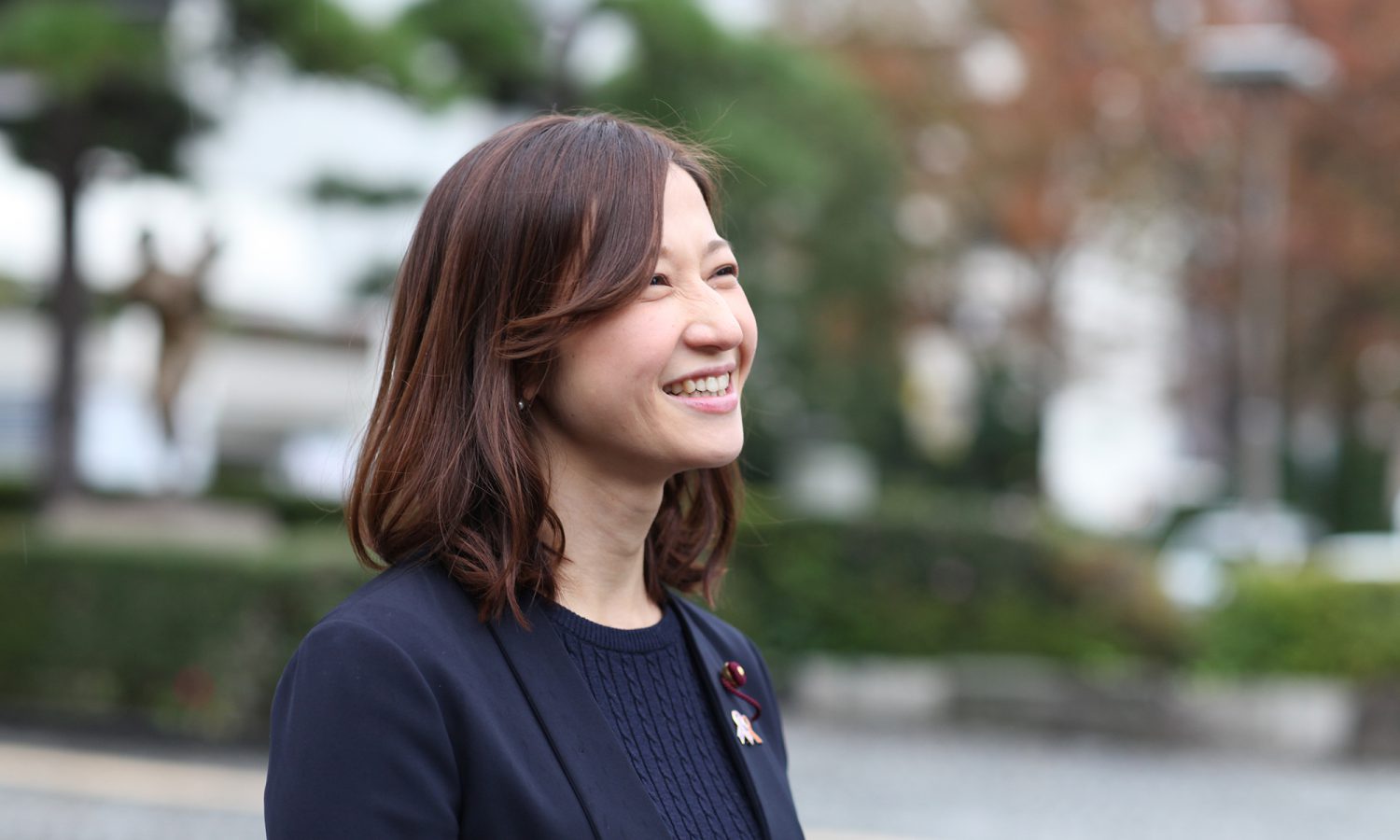What kept Natsumi Sakai going forward was her one wish: to preserve her uterus and have a child. She found out right after her marriage that she had cervical cancer, then went through the following surgery and chemotherapy. In <PART1>, we talked about her 12 years of experience as a midwife & nurse, where she was faced with the painful reality of pregnancies and childbirth without a happy ending. She also shared with us her fight with cancer and how she made the difficult decision to keep her uterus. In this <PART2>, we will walk through her long, long journey of fertility treatment, miscarriage and threatened premature labor, and juggling all these while working. What is “the decision“ she came to after the successful delivery of her baby? What made her decide to enter the world of politics?
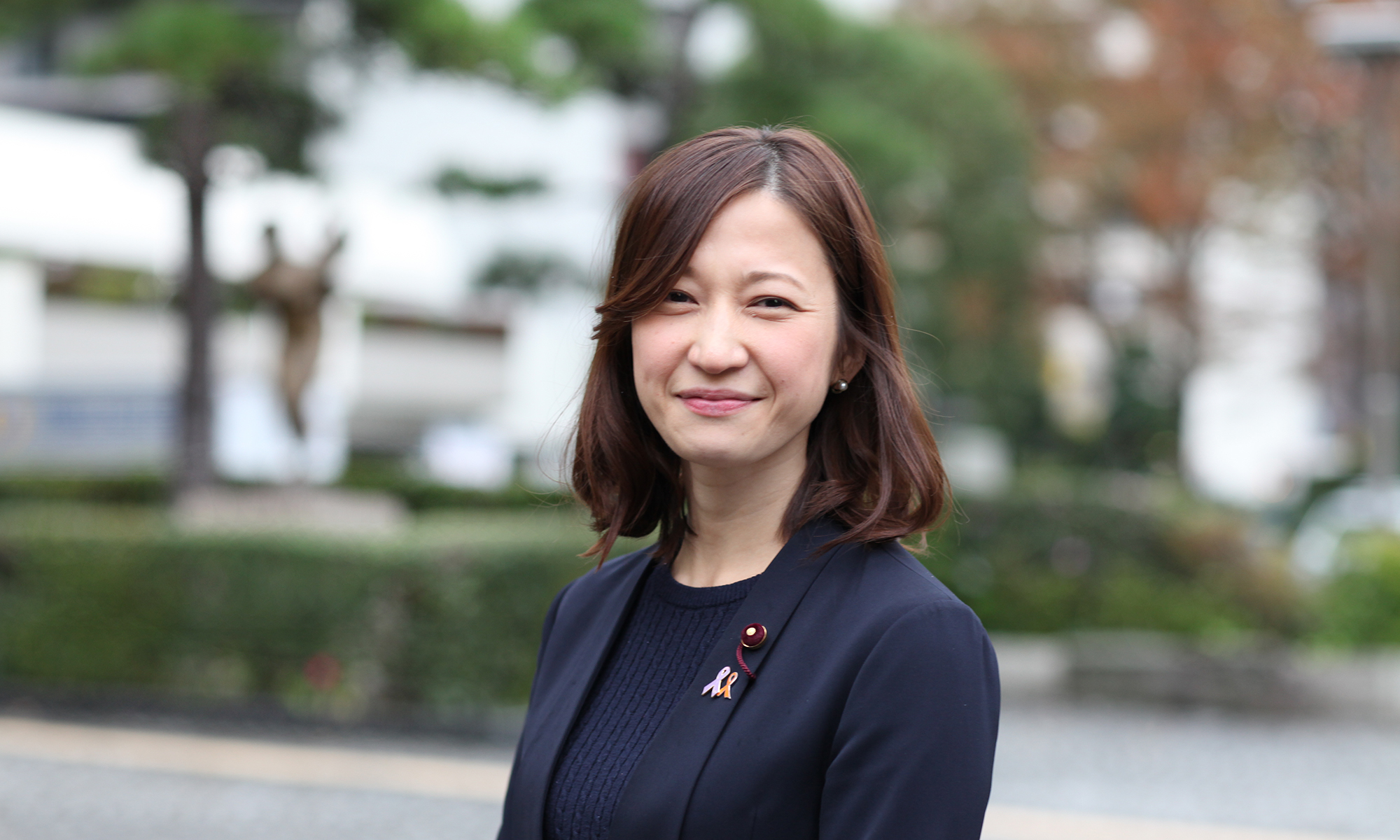
Natsumi Sakai member of Koto City Assembly
Born in Kitakyushu-City, Fukuoka Prefecture in 1986. After graduating from Jiyugaoka High School, majoring in nursing, she started her nursing job in an obstetrics and gynecology department in Nishi Tokyo City. In 2010 she was licensed and started working as a midwife. She is a certified Baby Food Advisor of the Maternal and Child Nutrition Association.
In 2013 Natsumi started her new life in Tokyo‘s Koto City after marrying. That same year, she also started a new career as one of the first staff members of the prenatal center of the newly opened Showa University Koto Toyosu Hospital. There, she experienced delivery assistance, nursing from pregnancy to postpartum, neonatal care, childcare consultation and guidance, as well as nursing for patients with gynecological issues. She was then transferred to a women‘s outpatient department, where she was in charge of consultation for women with obstetrics and gynecology as well as clinical oncology issues, pregnant women, and consultation for breast cancer patients.
In 2014, Natsumi was diagnosed with cervical cancer. After surgery and chemotherapy, she went back to work while still on sick leave. She then went through fertility treatment, miscarriage, and threatened premature delivery. She finally gave birth to a daughter in 2017. When her daughter was 8 months old, she returned to work. She was elected for the first time in the 2019 election for the Koto City Assembly and is now in her first term. She enjoys yoga and baking in her free time.
“Childbirth might mean losing the uterus”
Fertility treatment, miscarriage, threatened premature labor… the long journey to hold her baby in her arms
― So finally, you had your cancer treatment behind you, and were then stepping into fertility treatment with the burning desire to have a child. How did you experience the actual treatment? How did the cancer treatment affect the process?
Well… once I started the fertility treatment, it turned out that from the eggs collected, only one egg matured. Even with such a financial, mental and physical toll, only one single egg to proceed… I felt so let down by myself.
Our first IVF round didn’t succeed. We didn’t have any other fertilized eggs, so we had to start all over again. In the next round, we managed to have two eggs to proceed, so we froze one in the blastocyst stage and tried to implant the other one, but that didn’t work either.
At that time, I felt the urge to question this unfairness: why is it only women who have to go through this pain and suffering? I confronted my husband with this emotion. All he could do was to sincerely listened to me, and be there with me.
Later on, we implanted the other blastocyst and I did get pregnant. But the heartbeat of the baby stopped at 7 weeks.
With the history of my cancer treatment, it was difficult to medically assist the miscarriage. So we had to wait for it to happen naturally. Then I had unbearable pain in my stomach and I ended up having surgery.
It went successfully, but I had a high fever due to a inflammation around the stitches, and was hospitalized for a week. I was a total wreck, mentally and physically.
― There was a tough road still from there… Did you think about the option of stopping the treatment and giving up having children?
No, I didn’t. I just wanted to give birth to a child while I still had my uterus and before the cancer came back. That conviction was unwavering.
The 6-month-limit given by my doctor had passed by then, but my AMH levels had increased. I felt I could go on for a little longer. At the same time, I felt that the effects of my chemotherapy were quite significant. Therefore I wanted to try other methods that were physically more gentle.
My doctor told me to wait for two to three menstrual cycles after the miscarriage before resuming fertility treatment, but I couldn’t wait that long. So we tried artificial insemination. I was very impatient and had to do something.
If we weren‘t successful after three trials of artificial insemination, we were going to change clinics. With the third try, I unexpectedly got pregnant.
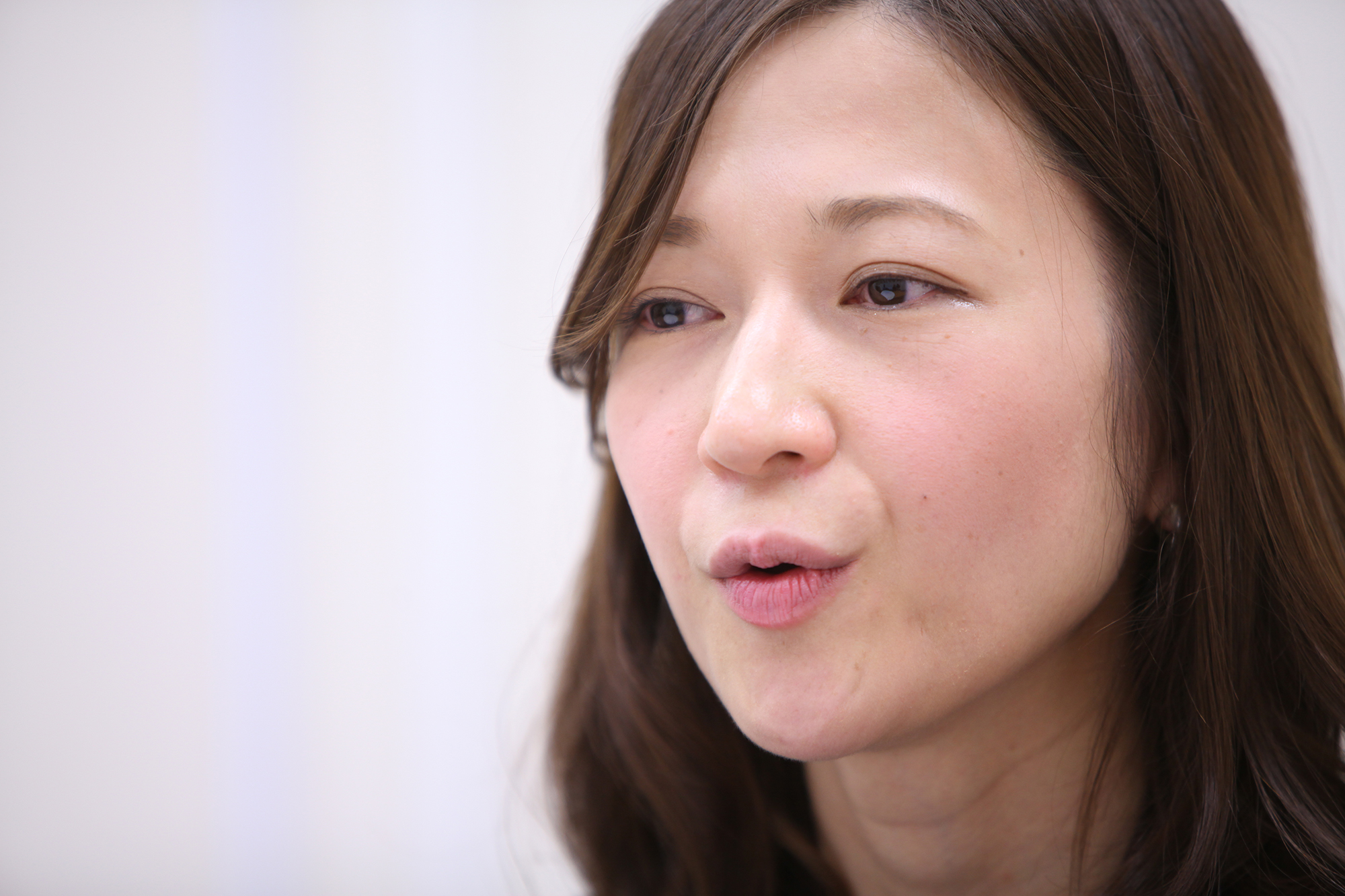
― Wow, finally… How did you feel?
The possibility of miscarrying again crossed my mind. I didn’t feel at ease during the pregnancy.
I was connected with other women who were cervical cancer survivors and had the same type of surgery. I often heard of miscarriage experiences around the 30th week.
And as I feared, my pregnancy wasn’t going smoothly. I ended up bleeding at the 16th week and had to be hospitalized for a week. My doctor ordered me to stop working.
I was aware that a high-risk expecting mother, so I had already informed people at work that I would go on maternity leave earlier. But I was only halfway through my pregnancy, and this sudden change shook me quite a bit.
For the 5 months from then until the birth, I was on bed rest at home.
― 5 months bedridden must have been very tough.
My doctor told me that I was at risk of miscarrying or of premature birth. Every day was a struggle with fear. Can I survive today, this week? Since I couldn’t move, I was constantly on my computer, reading some related blogs or research papers.
Week 20, 21, 22… what if the baby was born this week? What kind of damage would a baby have if it comes out now? I had to seriously think about that.
I had frustration simmering inside me while I was spending time at home, with the support from my husband and my sister. After 32nd week I had to be hospitalized because of the acute risk of threatened premature delivery.
― What a long, long, LONG journey to the actual labor…
Yes really, it was so long.
Cervical cancer surgery, chemotherapy, AIH and intracytoplasmic insemination, threatened premature delivery. I went through a “full course menu“ of more than what I experienced at work with nursing and labors. I thought that through this, I would become invincible as a midwife (laughter)!
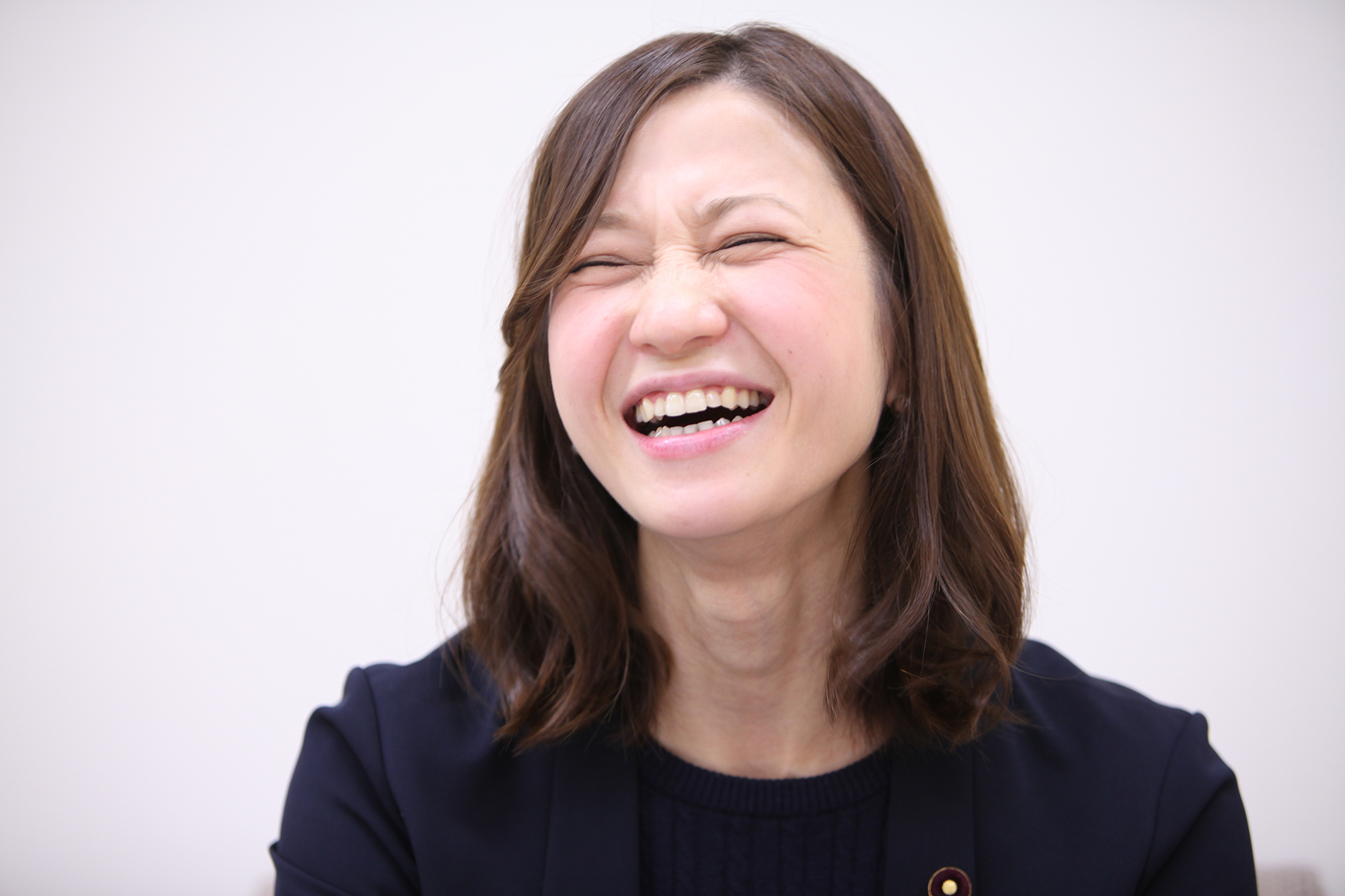
The decision I made: To live on with my child and my husband
― How did you experience your labor?
In the full term of 37th week, I was supposed to deliver my baby by caesarian section. Then we had a huge decision to make, which was to remove my uterus at that time.
My doctor told me that my uterus should not be left there, so I should have it removed considering the risk of recurrence of cancer in the future. On the other hand, because of the heavy blood flow in the uterus during pregnancy, the doctor also told me of the risk of having it removed at the same time as the surgery.
On top of that, I was told that even if I decided for my uterus to be removed, this couldn‘t be done if the baby was delivered prematurely, because it would be difficult to secure personnel if it was not at the timing of the scheduled C-section at 37 weeks. As I thought about the various situations, the more weeks passed of my pregnancy, the more real the choices became.
Originally, my husband wanted three children and I wanted two. Finally, the future of becoming parents was right in front of us. If I took out my womb, we wouldn’t be able to have her siblings anymore. That is why we felt very hesitant about making the decision.
― You might lose your womb at the same time you give birth…
“We do want our second child later on. Wouldn’t it be okay to keep the uterus?“, my husband said.
But I was beginning to realize with the high-risk pregnancy I was having, there was no way I was going to be able to go through the same kind of pregnancy again with my condition, while raising a child.
Besides, I could not think of dying and leaving behind my baby, then growing in my belly. If she comes out to this world safely, I want to see her grow.
The decision was a tough one to make.
But in the end, I shared my thoughts with my husband and made up my mind that if I could have a scheduled C-section at 37 weeks, I would remove my uterus.
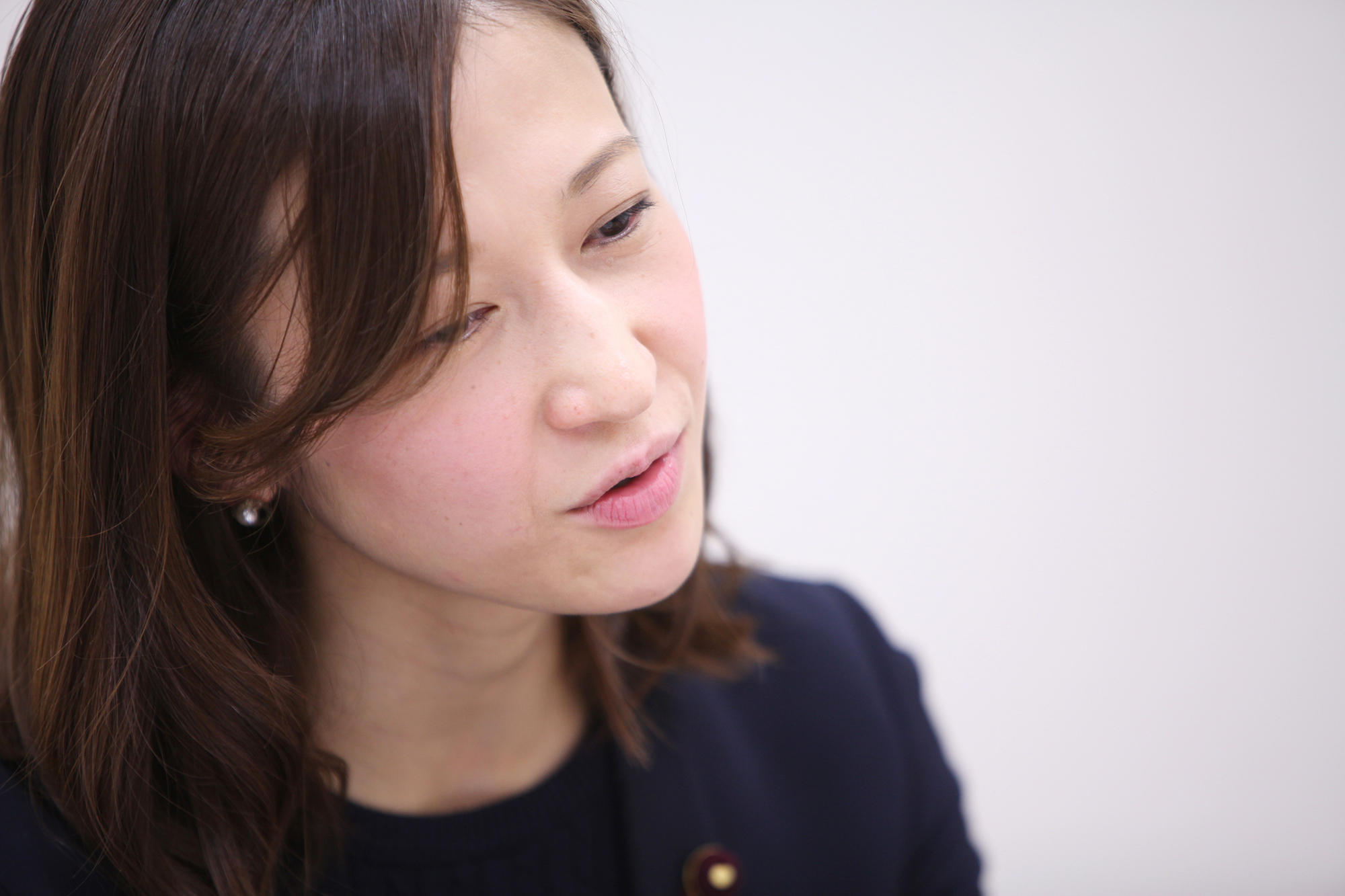
― You are so strong… Do you think that it was the self-awareness as a mother, which supported and guided that decision?
I believe so.
I had to stay alive for our daughter who was about to be born, and for my husband, as we were about to become parents together.
When the time came for me to have my baby by C-section at 37 weeks, I burst into tears on the operating table. I couldn’t stop crying because I had a complex feeling of relief that I had finally come this far, and sadness that I was going to lose my uterus.
The operation went well. The pathological examination of my uterus showed no cancer cells and no adhesions in my abdomen, which was a great relief.
Now I can live my life together with my child and my husband.
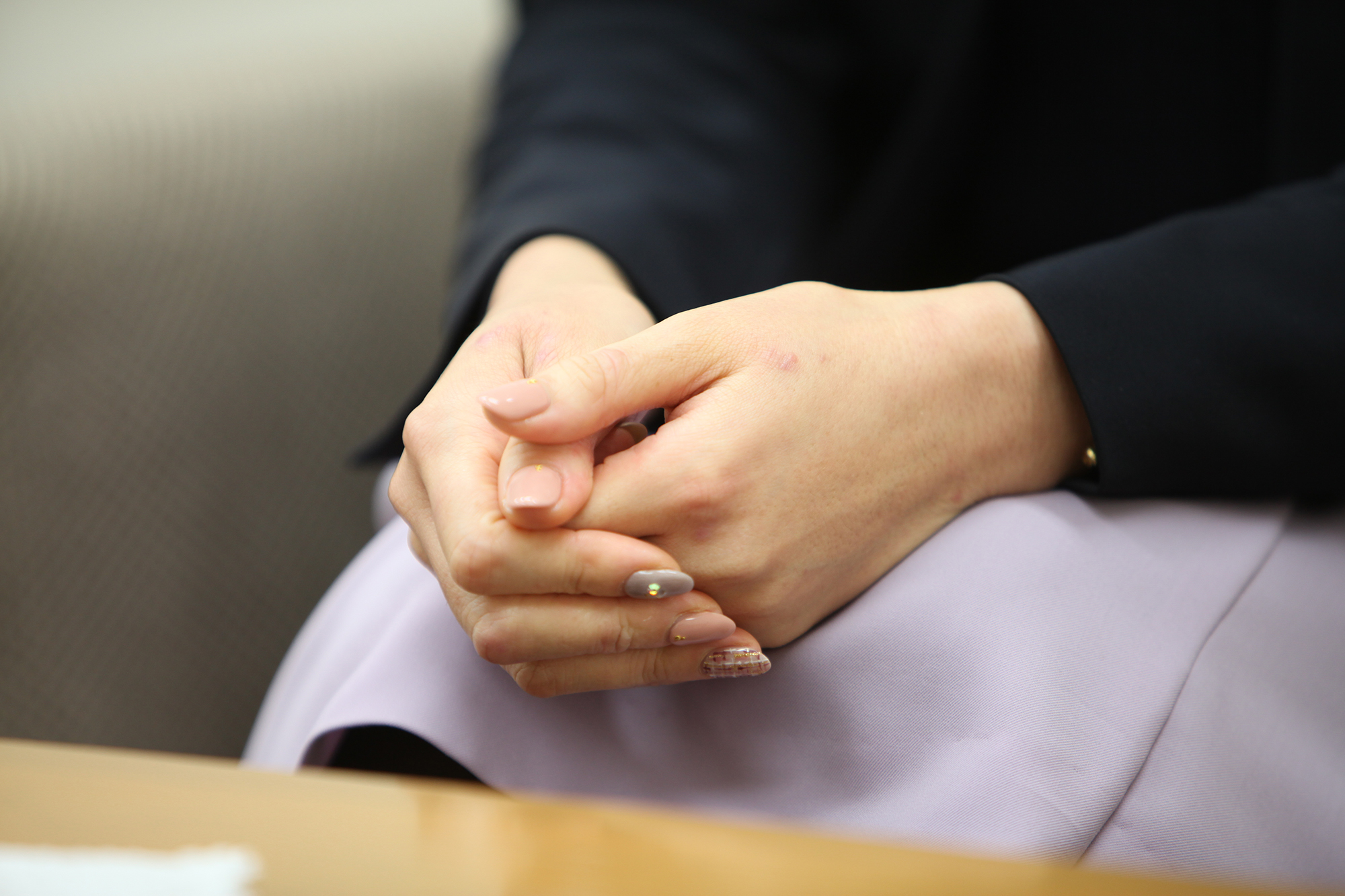
A society where we can save women like me from the pain I felt at the time
Postpartum blues: I couldn’t stop crying at night
― Could you tell us how it was when you met your much-awaited baby for the first time?
I was able to see my daughter right after the operation, but… I was vomiting because of the side effects of the general anesthesia.
I was in such a horrible condition that I was far from being able to enjoy it all (laughs). It was like parenting began, without a second to indulge myself in the joy.
― You can’t pause raising a baby even when your health wasn’t improving.
I’d helped thousands of babies and mothers before, so I thought my postpartum parenting would be okay, based on my experience.
I had even told my mother that she didn’t have to come to support me. Since I had a high-risk pregnancy, I couldn’t travel, and I didn’t have the option of temporarily returning to my parents’ place and giving birth in my home town.
After we were released from the hospital, my husband and I started to raise our child together, but I was having a mental breakdown, and when nightfall approached, I couldn’t stop crying. It was completely hormonal. I was afraid of the night coming and I got depressed in the evenings.
I was aware that I was experiencing maternity blues. Even though I am a midwife!
My poor husband didn’t know what to do with me (laughs). I told him that it was all hormones, and that I would feel better with time. And in fact, my physical and mental condition were both getting better simultaneously.
― There is really nothing you can do about postpartum hormonal imbalances. Did youexperienced any emotional turmoil over the loss of your uterus during that time?
No, not after giving birth. But after my daughter became one and a half years old, I started to see a growing number of mothers becoming pregnant with their second babies.
Then it hit me: we are not able to give her siblings anymore.
On the other hand, I was very much interested in adoption and foster care.
I’m looking at those options, but it’s not something I can decide on my own. Recently, I started asking my husband to go to some workshops.
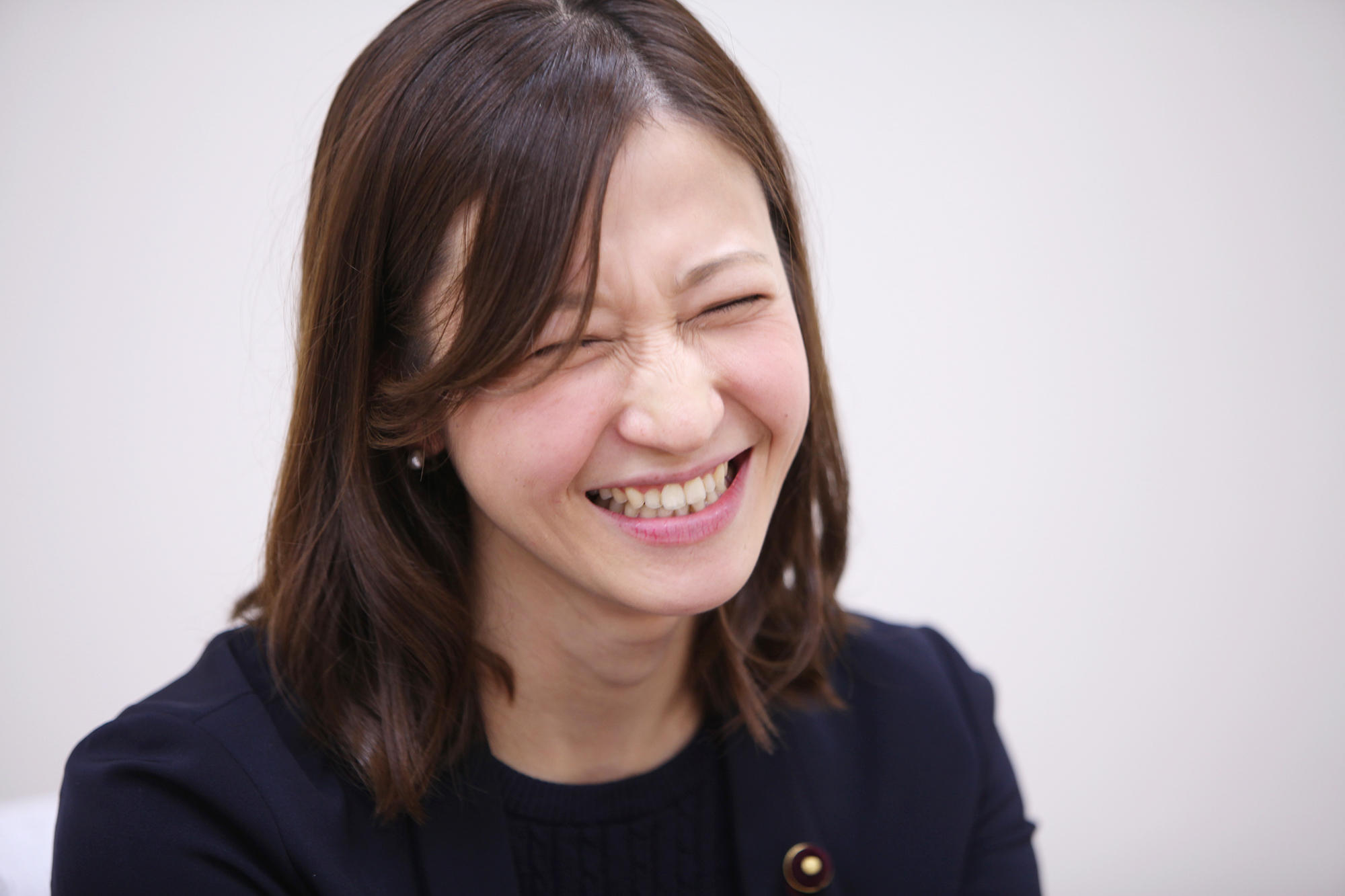
My desire to change society by delivering the voice of people concerned – to the world of politics
― You have gone through such an intense experience. Ms Sakai, what made you decide to step into the world of politics?
The first event which lead me to my decision was exactly four years ago. There was a unified local election going on. I had been diagnosed with cancer and was then undergoing chemotherapy.
I was looking at the posters on the bulletin board trying to decide who to vote for, and there were two women running for office who were both 28 years old – exactly my age at the time. They were a single mother and a daycare worker.
I felt encouraged and wanted to support them. At the same time, it occurred to me for the first time that I might be able to put my experience to use in some way in politics.
I had often wondered through my own experience, why it was so difficult for women to go through chemotherapy and fertility treatment while working at the same time, and why there aren‘t enough support systems for such women while they diligently pay taxes? If we don’t deliver those voices, society will never change.
It was that time when I decided to run for office. “If four years from now, I have survived cancer, recovered my health, given birth to a child, and haven’t lost the desire to run for political office, I will do it.“
I know I was reckless. My husband didn’t even take me seriously (laughs).
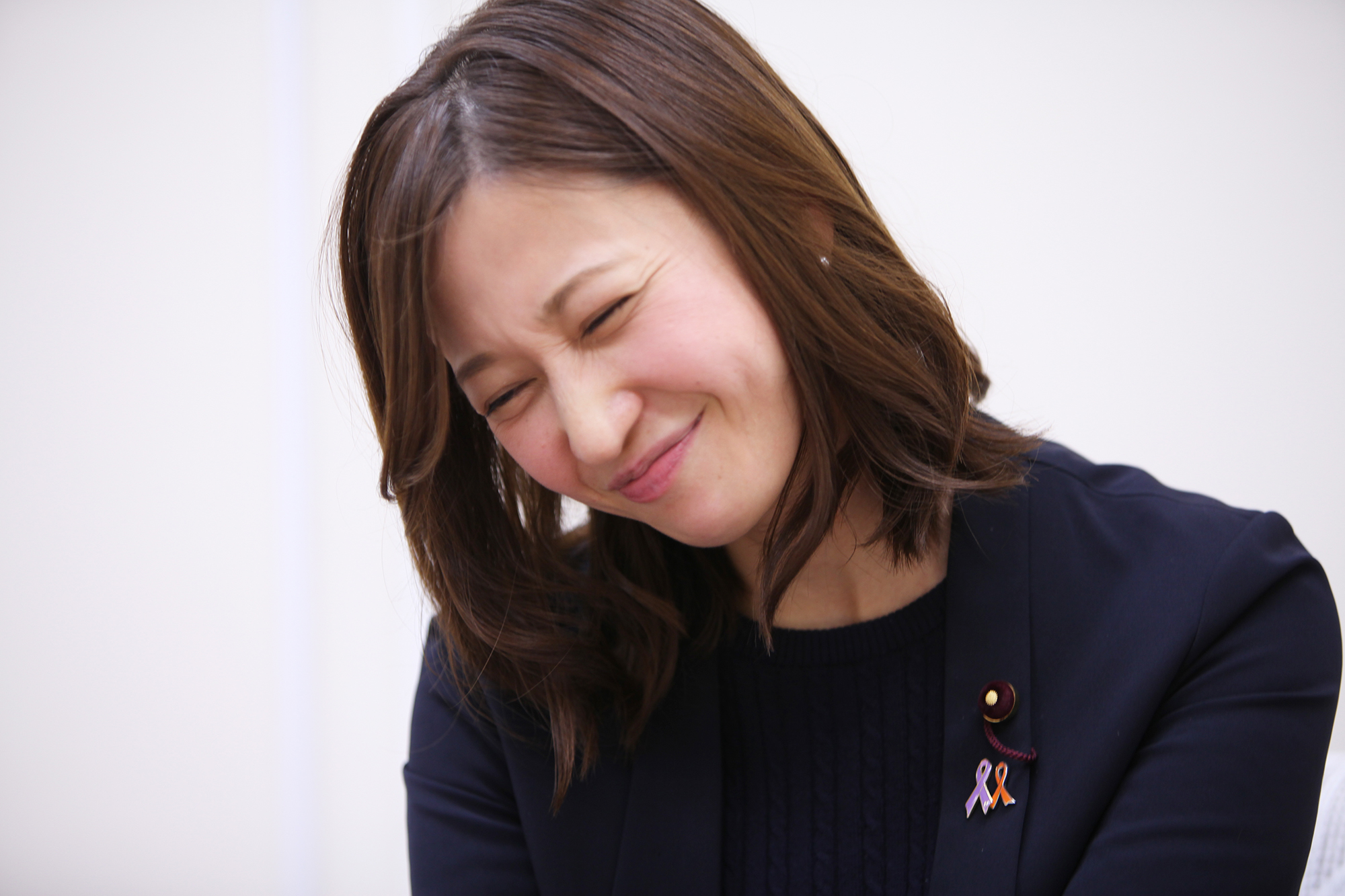
― But in fact, before the election 4 years later, the three conditions which had been guiding you came true.
Yes, that’s right. After I gave birth, I started to prepare for my candidacy. For example, I was learning by reading books written by people who had become local councilors at a young age.
However, as a courtesy to the workplace which had been supporting me greatly, I didn’t want to leave my job without ever coming back. So when my daughter was 8 months old, I started working again, using a daycare service.
Finding a daycare center for her was another tough experience. I remember being outraged by the situation, that so many kids were on the waiting list to get into the daycare center, and very little has been done to solve this problem.
Shortly after I returned to work, I took a big step and told my superior that I wanted to quit in 6 months to prepare for the next local unified election. Then she said, “Actually, I’ve thought about becoming a local council member as well, but I gave up. I want to support your decision!“ I was so thankful…
From that point on, I worked until the very last minute, as my daughter would have had to leave the daycare center if I quit my job. So I decided to use the three months allowed for job searching as a preparation period for the election.
I felt under pressure, since the preparation period become shorter than we anticipated. With the team of just my husband and me, we handed out flyers and made speeches on the streets every day.
But in the middle of winter, standing on the street, no one was willing to take the flyers or listen to me.
I felt lonely at first, but then, as I continued, more and more people started listening to me.
As I was earnestly talking to them, telling them who I was and why I wanted to become a politician, some of them encouraged me by saying, “I am also fighting with cancer,” or, “I support you.”
― And you won the election! I’m sure it’s difficult to balance raising a child and taking action in a new environment, a new life stage. And you still have concerns about your physical condition.
When I was elected, my daughter was 1 year and 8 months old.
I won’t be able to have any more children, and I risked my life to have my daughter. Therefore, I really value our family time.
If I cannot make my family happy, I don‘t believe I can contribute to society. Since I had to be on bed rest for the last 5 months of my pregnancy, my physical endurance level decreased. So I pace myself and try to refrain from things like late night meetings.
With the faces of those who voted for me in mind, I make choices in a limited amount of time, based on the vision of the society which I want to achieve, and what I need to do to make it happen.

― I’m sure that you have a lot of voices of people to convey, and things you will be able to accomplish, because of the many personal experiences you have been through. Now, that brings us to our last question for you. Please tell us about the society that you would like to realize in the future.
Sure. Even if it‘s not visible, we all have things we carry with us.
I would like to expand the local community on which we can rely in times of hardship. I believe that society should be able to help people in difficult times. The safety net should be made finely, instead of roughly with indifference.
In fact, in my first term as a ward councilor, I often felt like I was coming up against a wall, and I feel that changing society is not an easy task.
And yet, when I ask questions in the assembly, sometimes people encourage me afterward and support my point of view.
As someone directly affected by various issues, I would like to accurately convey not only my own experience but also the voices of other people who have experienced such things.
I want to create a society that can help and support people who are feeling the same kind of pain as I experienced.
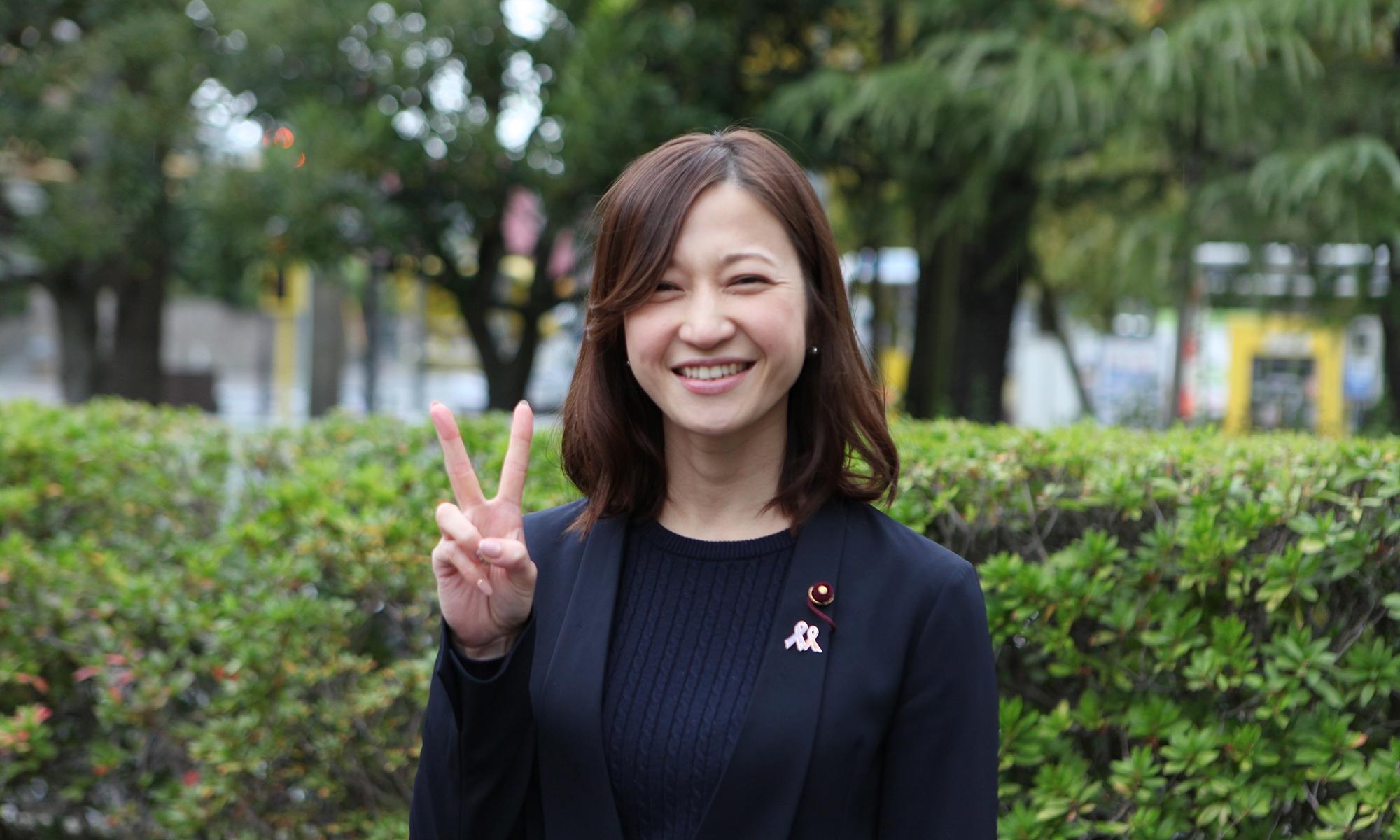
Interview&article/Rurika Toku, Photos/Chihiro Netsu, Translate/Yoko Gross, Interview room offered/Koto City Assembly, and Special thanks/Meri Joyce

